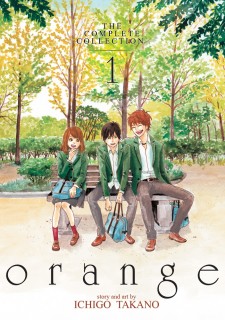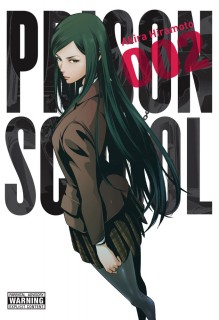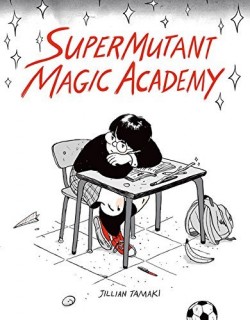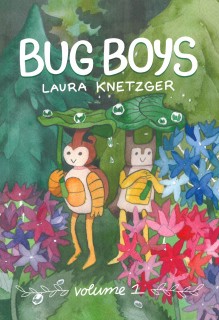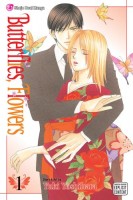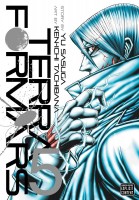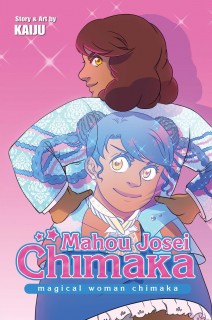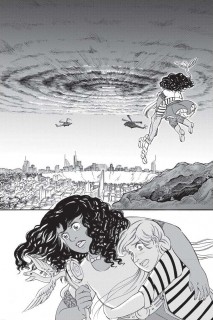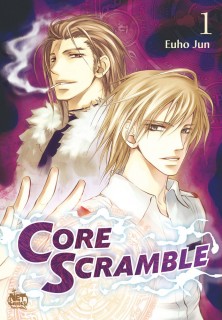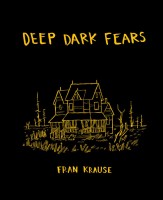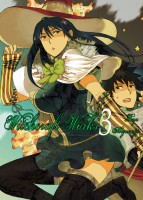My News and Reviews
It’s the end of the month, so there were a couple of different things posted at Experiments in Manga last week, such as the launch of the most recent manga giveaway. The winner will be announced on Wednesday, but until then there’s still time to enter for a chance to win the first two volumes of Daisuke Ashihara’s World Trigger. The most recent review in my monthly horror manga review project was posted last week as well (technically it’s a week late). This month I took a look at After School Nightmare, Volume 8 by Setona Mizushiro. It’s a fairly momentous installment in the series, with several major developments and revelations.
Elsewhere online: Ryan Holmberg examines pro-nuclear manga of the seventies and eighties; Kodansha Comics has a two part interview with Hiroya Oku, the creator of Gantz and the more recent Inuyashiki; Justin of The Organization of Anti-Social Geniuses contacted Robert McGuire to determine the status of Gen Manga since the publisher has been rather quiet of late; finally, in an interesting move, Funimation has launched a Kickstarter for a newly dubbed blu-ray release of The Vision of Escaflowne; Anime News Network also interviewed some of Funimation’s staff members about the project.
Quick Takes
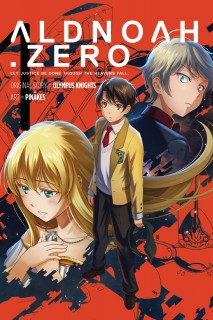 Aldnoah.Zero: Season One, Volumes 1-2 written by Olympus Knights and illustrated by Pinakes. I haven’t seen any of the original Aldnoah.Zero anime series, though I have been meaning to give at least a few episodes a try. The series mostly caught my attention for two reasons: the underlying story about interplanetary warfare between the humans on Earth and Mars (as I’ve mentioned in the past, I have particular interest in Mars), and the fact that Wandering Son‘s Takako Shimura was responsible for the character designs. Seeing as I generally have more opportunities to read manga than I do to watch anime, I figured I’d give the Aldnoah.Zero manga adaptation a try. Sadly, parts of the manga are somewhat difficult to understand if one isn’t familiar with the original. Pinakes makes heavy use of screentone, which obscures the artwork and action and gives the pages a cluttered feel. I do like the basic premise of the series, but the motivations behind the war, while cursorily explained, remain frustratingly unclear and many of the Martians come across as villainous caricatures rather than well-rounded characters.
Aldnoah.Zero: Season One, Volumes 1-2 written by Olympus Knights and illustrated by Pinakes. I haven’t seen any of the original Aldnoah.Zero anime series, though I have been meaning to give at least a few episodes a try. The series mostly caught my attention for two reasons: the underlying story about interplanetary warfare between the humans on Earth and Mars (as I’ve mentioned in the past, I have particular interest in Mars), and the fact that Wandering Son‘s Takako Shimura was responsible for the character designs. Seeing as I generally have more opportunities to read manga than I do to watch anime, I figured I’d give the Aldnoah.Zero manga adaptation a try. Sadly, parts of the manga are somewhat difficult to understand if one isn’t familiar with the original. Pinakes makes heavy use of screentone, which obscures the artwork and action and gives the pages a cluttered feel. I do like the basic premise of the series, but the motivations behind the war, while cursorily explained, remain frustratingly unclear and many of the Martians come across as villainous caricatures rather than well-rounded characters.
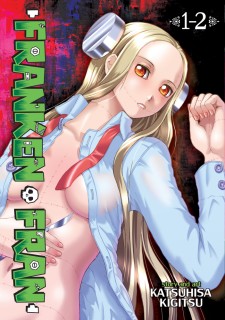 Franken Fran, Omnibus 1 (equivalent to Volumes 1-2) by Katsuhisa Kigitsu. I tend to enjoy horror manga and I had heard great things about Franken Fran, so I was very much looking forward to giving the series a try. The manga and its characters are delightfully quirky, in turns disturbingly cute and skin-crawlingly creepy. Fran is a charming young woman who, due to her nearly irrational reverence for life, is more or less an unintentional sadist. She, along with her cadre of assistants and monsters, saves lives through extreme surgeries and bizarre experiments often with gruesome results. Although there are recurring characters, the manga is generally episodic without much of a continuing story, but the chapters all have at least one deliberately shocking twist to them. Franken Fran, with its incredibly dark sense of humor, quickly and repeatedly swings from the surprisingly heartwarming to the magnificently grotesque and back. It’s definitely not a series for everyone, but I’ll certainly be picking up the rest of the manga.
Franken Fran, Omnibus 1 (equivalent to Volumes 1-2) by Katsuhisa Kigitsu. I tend to enjoy horror manga and I had heard great things about Franken Fran, so I was very much looking forward to giving the series a try. The manga and its characters are delightfully quirky, in turns disturbingly cute and skin-crawlingly creepy. Fran is a charming young woman who, due to her nearly irrational reverence for life, is more or less an unintentional sadist. She, along with her cadre of assistants and monsters, saves lives through extreme surgeries and bizarre experiments often with gruesome results. Although there are recurring characters, the manga is generally episodic without much of a continuing story, but the chapters all have at least one deliberately shocking twist to them. Franken Fran, with its incredibly dark sense of humor, quickly and repeatedly swings from the surprisingly heartwarming to the magnificently grotesque and back. It’s definitely not a series for everyone, but I’ll certainly be picking up the rest of the manga.
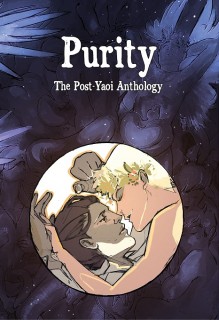 Purity: The “Post-Yaoi” Anthology edited by Anne Notation and A. E. Green. I was previously unfamiliar with most of the contributors to Purity; I learned about the anthology due to the participation of two creators whose work I currently follow—Kori Michele Handwerker and Starlock. (I was happy to discover that a comic by Alexis Cooke, one of Sparkler Monthly‘s creators, was also included.) Purity is a collection of forty-two homoerotic illustrations and short comics by forty-eight creators from around the world who have been influenced by yaoi manga. Although it’s clear that some of the artwork was originally in color, the anthology has been printed in grayscale. There’s a nice variety in the tone and style of the contributions in Purity; some are sweet while others are unapologetically smutty (and there’s nothing wrong with that). Genre-wise, the anthology tends towards the paranormal, fantastic, and futuristic, but there are contributions firmly based in reality, too. Although all of the stories stand on their own, a few do tie in with some of the creators’ existing works.
Purity: The “Post-Yaoi” Anthology edited by Anne Notation and A. E. Green. I was previously unfamiliar with most of the contributors to Purity; I learned about the anthology due to the participation of two creators whose work I currently follow—Kori Michele Handwerker and Starlock. (I was happy to discover that a comic by Alexis Cooke, one of Sparkler Monthly‘s creators, was also included.) Purity is a collection of forty-two homoerotic illustrations and short comics by forty-eight creators from around the world who have been influenced by yaoi manga. Although it’s clear that some of the artwork was originally in color, the anthology has been printed in grayscale. There’s a nice variety in the tone and style of the contributions in Purity; some are sweet while others are unapologetically smutty (and there’s nothing wrong with that). Genre-wise, the anthology tends towards the paranormal, fantastic, and futuristic, but there are contributions firmly based in reality, too. Although all of the stories stand on their own, a few do tie in with some of the creators’ existing works.

